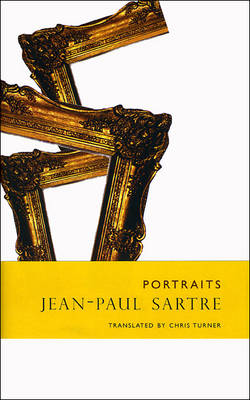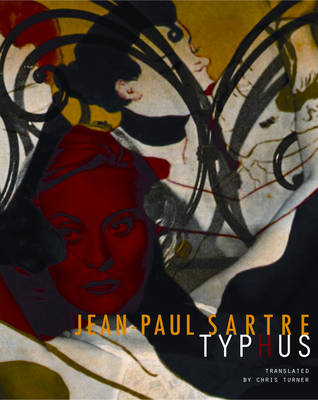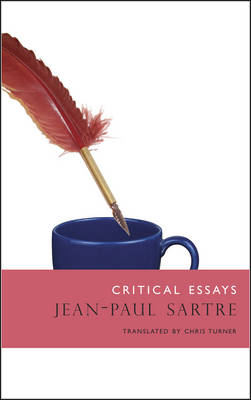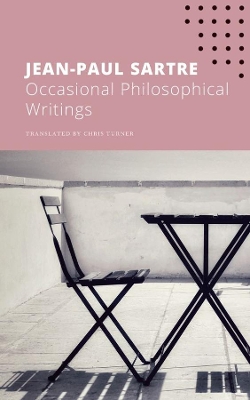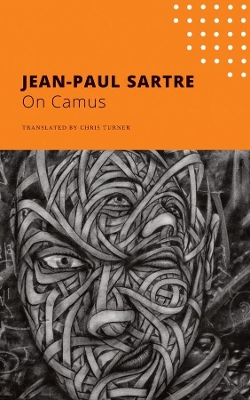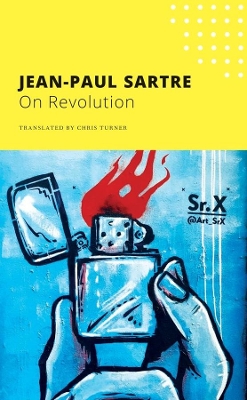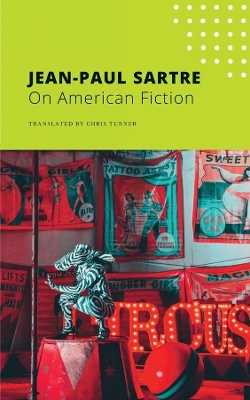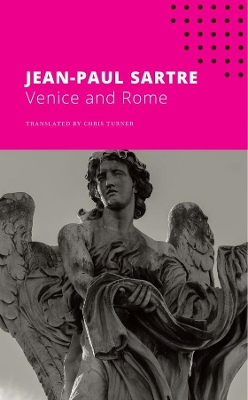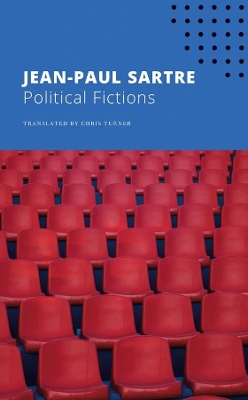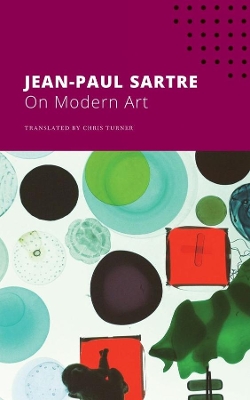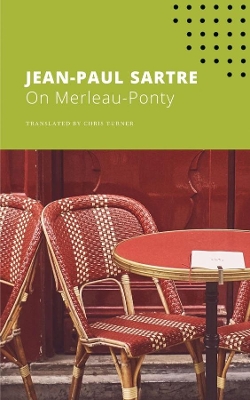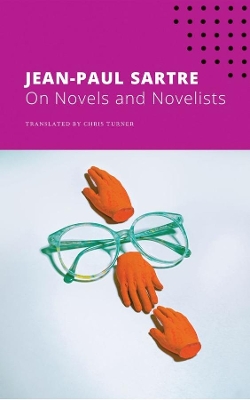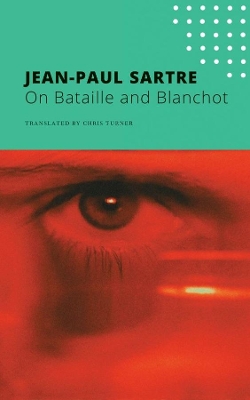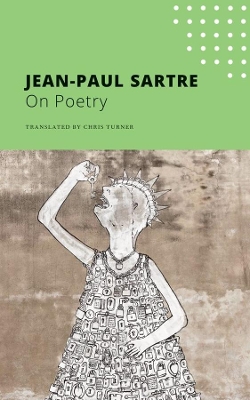The French List
15 total works
This new translation by Chris Turner presents these essays in their complete form as originally intended by Sartre and is essential reading for anyone interested in the artistic and intellectual history of the time.
"Critical Essays" also contains a famous attack on the Catholic novelist Francois Mauriac, studies of the great American literary iconoclasts Faulkner and Dos Passos, and brief but insightful essays on aspects of the philosophical writings of Husserl and Descartes. This new translation by Chris Turner reinvigorates the original skill and voice of Sartre's work and will be essential reading for fans of Sartre and the many writers and works he explores.
Iconic French novelist, playwright, and essayist Jean-Paul Sartre is widely recognized as one of the most important philosophers of the twentieth century, and his work has remained relevant and thought-provoking through the decades. The Seagull Sartre Library now presents some of his most incisive philosophical, cultural, and literary critical essays in twelve newly designed and affordable editions.
Post-War Reflections collects eight of Sartre’s essays that were written in his most creative period, just after World War II. Sartre’s extraordinary range of engagement is manifest in this collection, which features writings on postwar America, the social impact of war in Europe, contemporary philosophy, race, and avant-garde art.
Iconic French novelist, playwright, and essayist Jean-Paul Sartre is widely recognized as one of the most important philosophers of the twentieth century, and his work has remained relevant and thought-provoking through the decades. The Seagull Sartre Library now presents some of his most incisive philosophical, cultural, and literary critical essays in twelve newly designed and affordable editions.
The four essays of varying length assembled in this volume bear witness to Sartre's preoccupation with philosophers and their work. In these pages he examines Descartes's concept of freedom; comments on a fundamental idea in Husserl's phenomenology: intentionality; writes a mixed review of Denis de Rougemont's monumental Love in the Western World; and provides an extensive critical analysis of the work of Brice Parain, one of France's leading philosophers of language.
Iconic French novelist, playwright, and essayist Jean-Paul Sartre is widely recognized as one of the most important philosophers of the twentieth century, and his work has remained relevant and thought-provoking through the decades. The Seagull Sartre Library now presents some of his most incisive philosophical, cultural, and literary critical essays in twelve newly designed and affordable editions.
Sartre met Albert Camus in Occupied France in 1943, and from the start, they were an odd pair: one from the upper reaches of French society; the other, a pied-noir born into poverty in Algeria. The love of “freedom,” however, quickly bound them in friendship, while their fight for justice united them politically. But in 1951 the two writers fell out spectacularly over their literary and political views, their split a media sensation in France. This volume holds up a remarkable mirror to that fraught relationship. It features an early review by Sartre of Camus’s The Stranger; his famous 1952 letter to Camus that begins, “Our friendship was not easy, but I shall miss it”; and a moving homage written after Camus’s sudden death in 1960.
Iconic French novelist, playwright, and essayist Jean-Paul Sartre is widely recognized as one of the most important philosophers of the twentieth century, and his work has remained relevant and thought-provoking through the decades. The Seagull Sartre Library now presents some of his most incisive philosophical, cultural, and literary critical essays in twelve newly designed and affordable editions.
On Revolution consists of a long essay in two parts in which Sartre dwells upon the "myth" of revolution and goes on to analyze revolutionary ideas in fascism and, especially, Marxism. In the second essay, Sartre examines the figure of the artist and his conscience, especially in relation to communism.
Iconic French novelist, playwright, and essayist Jean-Paul Sartre is widely recognized as one of the most important philosophers of the twentieth century, and his work has remained relevant and thought-provoking through the decades. The Seagull Sartre Library now presents some of his most incisive philosophical, cultural, and literary critical essays in twelve newly designed and affordable editions.
Sartre's engagement with the literature of his day extended well beyond the works of his French contemporaries. This short volume testifies to his astonishing grasp of the nuances of American fiction, as he analyzes three of the most important twentieth-century writers: John Dos Passos, Vladimir Nabokov, and William Faulkner, whose "humanism," writes Sartre, "is the only acceptable sort."
Iconic French novelist, playwright, and essayist Jean-Paul Sartre is widely recognized as one of the most important philosophers of the twentieth century, and his work has remained relevant and thought-provoking through the decades. The Seagull Sartre Library now presents some of his most incisive philosophical, cultural, and literary critical essays in twelve newly designed and affordable editions.
"Venice speaks to us; this false witness's voice, shrill at times, whispering at others, broken by silences, is its voice." In these three moving short pieces, we discover Sartre as a master stylist, lyrically describing his time in two bewitching eternal cities-Venice and Rome. "Antiquity," Sartre writes, "is alive in Rome, with a hate-filled, magical life."
Iconic French novelist, playwright, and essayist Jean-Paul Sartre is widely recognized as one of the most important philosophers of the twentieth century, and his work has remained relevant and thought-provoking through the decades. The Seagull Sartre Library now presents some of his most incisive philosophical, cultural, and literary critical essays in twelve newly designed and affordable editions.
Political Fictions includes Sartre’s long foreword to André Gorz’s The Traitor, which has often been called the most intimate and profound book to emerge from the existentialist movement. Sartre also presents a detailed portrait of his friend and fellow writer Paul Nizan (1905–1940), once a committed communist, who died fighting the Nazis at the Battle of Dunkirk. Also featured here is Sartre’s famous foreword to Nizan’s novel The Conspiracy, which made the novel famous on its republication in the 1960s, when it was adopted as an iconic text during the events of May ’68.
Iconic French novelist, playwright, and essayist Jean-Paul Sartre is widely recognized as one of the most important philosophers of the twentieth century, and his work has remained relevant and thought-provoking through the decades. The Seagull Sartre Library now presents some of his most incisive philosophical, cultural, and literary critical essays in twelve newly designed and affordable editions.
Sartre was a prodigious commentator on contemporary art, as is evident from the short but incisive essays that make up this important volume. Sartre examines here the work of a wide range of artists, including recognized masters such as Alberto Giacometti, Alexander Calder, and André Masson, alongside unacknowledged greats like French painter Robert Lapoujade and German painter-photographer Wols.
Iconic French novelist, playwright, and essayist Jean-Paul Sartre is widely recognized as one of the most important philosophers of the twentieth century, and his work has remained relevant and thought-provoking through the decades. The Seagull Sartre Library now presents some of his most incisive philosophical, cultural, and literary critical essays in twelve newly designed and affordable editions.
This volume consists of a single long essay that analyzes the work of Maurice Merleau-Ponty (1908-1961), who was the leading phenomenological philosopher in France and the lead editor of the influential leftist journal Les Temps modernes, which he established with Sartre and Simone de Beauvoir in 1945. Written in the wake of Merleau-Ponty's death, this essay is a moving tribute from one major philosopher to another.
Iconic French novelist, playwright, and essayist Jean-Paul Sartre is widely recognized as one of the most important philosophers of the twentieth century, and his work has remained relevant and thought-provoking through the decades. The Seagull Sartre Library now presents some of his most incisive philosophical, cultural, and literary critical essays in twelve newly designed and affordable editions.
In this collection of brief, insightful essays, we find ourselves face to face with Sartre the literary critic, as he carefully examines the works of renowned French writers such as François Mauriac, Nathalie Sarraute, Jean Giraudoux, and Jules Renard. Most moving is an essay on André Gide, written right after his death, in which Sartre writes, “We thought him scared and embalmed; he dies and we discover how alive he was.”
Iconic French novelist, playwright, and essayist Jean-Paul Sartre is widely recognized as one of the most important philosophers of the twentieth century, and his work has remained relevant and thought-provoking through the decades. The Seagull Sartre Library now presents some of his most incisive philosophical, cultural, and literary critical essays in twelve newly designed and affordable editions.
"There is a crisis of the essay," begins Sartre as he ventures into a long analysis of the work of one of his contemporaries who he argues might save this form: Georges Bataille. From there, Sartre moves on in this compact volume to consider Aminadab, the most important work of another hugely influential philosopher, Maurice Blanchot, through whom, writes Sartre, "the literature of the fantastic continues the steady progress that will inevitably unite it, ultimately, with what it has always been."
Iconic French novelist, playwright, and essayist Jean-Paul Sartre is widely recognized as one of the most important philosophers of the twentieth century, and his work has remained relevant and thought-provoking through the decades. The Seagull Sartre Library now presents some of his most incisive philosophical, cultural, and literary critical essays in twelve newly designed and affordable editions.
On Poetry includes two long essays in this slim volume. The first explores the Negritude poetry movement by analyzing the work of several Black poets of the time. The second is a meditation on the poetry of renowned French author Francis Ponge (1899-1988), who, influenced by surrealism, developed his unique form of prose poetry.
